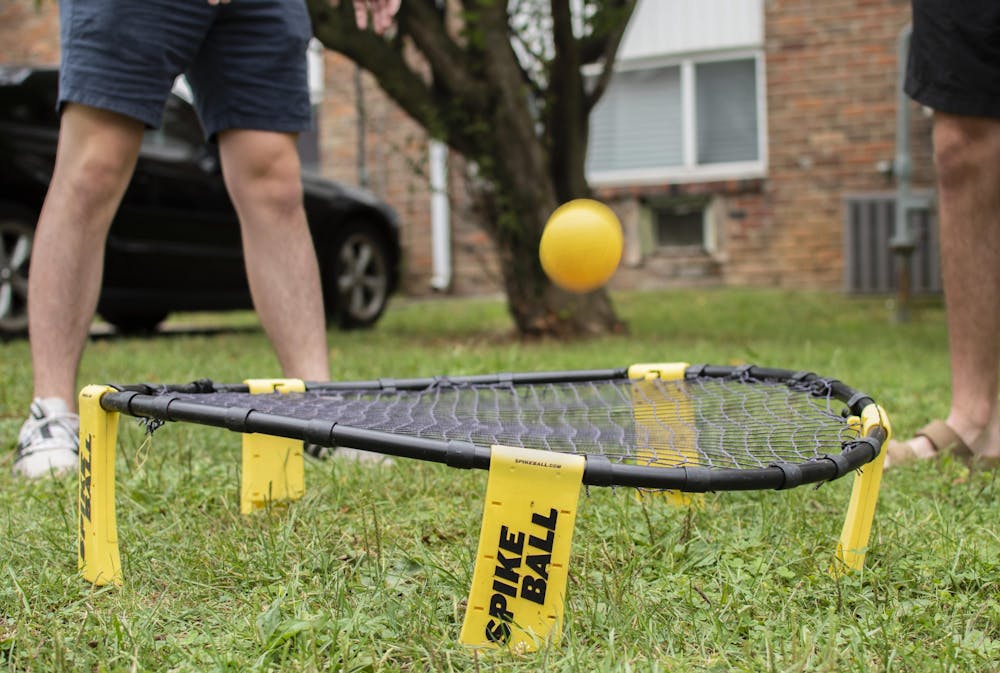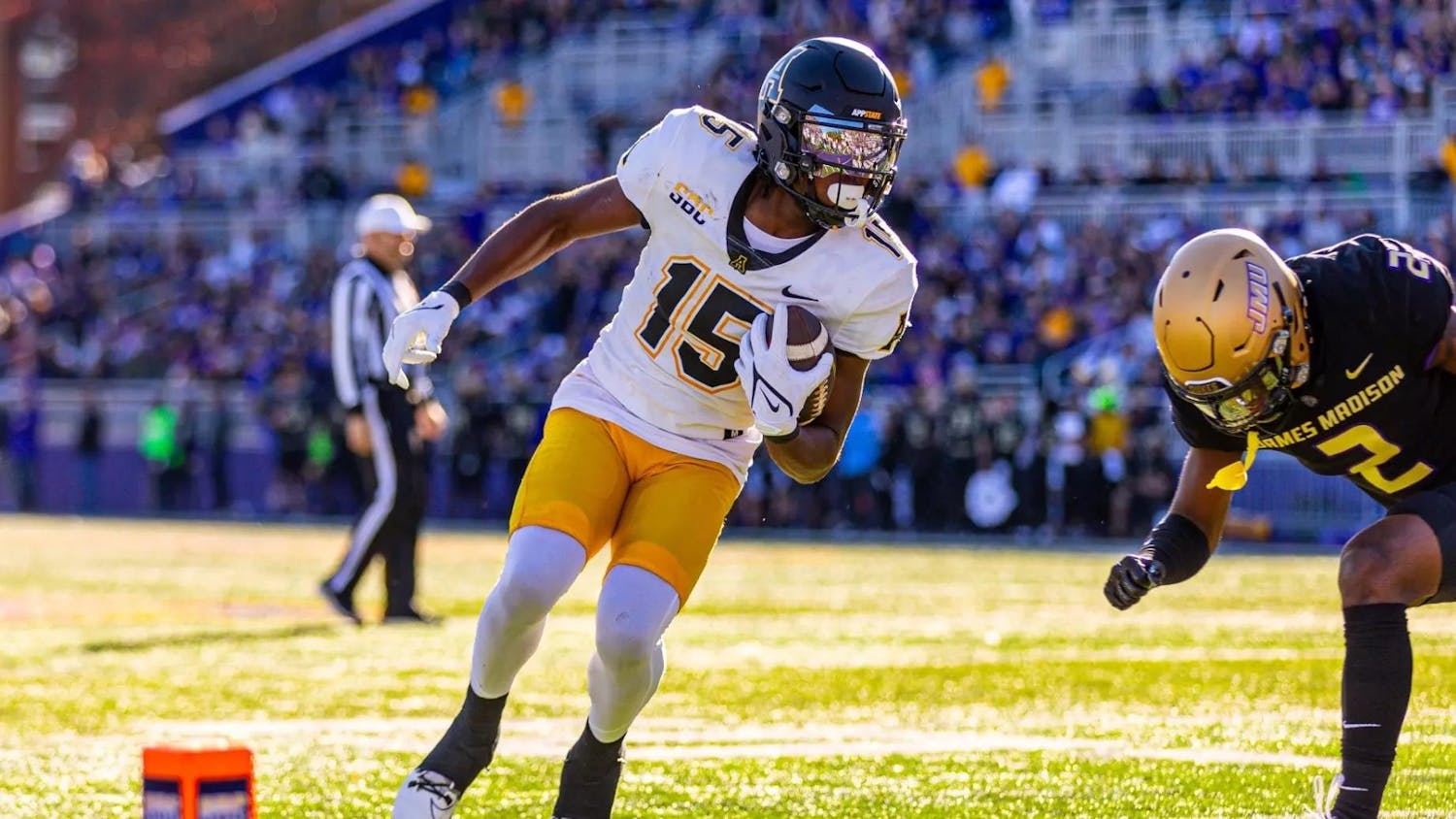If you’ve walked through IU’s campus at all this fall semester, chances are you’ve seen plenty of those black and yellow circular nets with four students gathered around. Those aren't mini-trampolines, they’re Spikeball nets, the sport that has made its way from a beach in Hawaii to become a worldwide phenomenon.
Childhood friends Chris Ruder, Patrick Kennedy, Tim Kennedy and Matt Ruder played a game in their Chicago neighborhood back in 1989 bought for them by Patrick and Tim’s father, Joe . The four kids loved it, but when other people observed them, they were confused. They wondered what the game was, how to play and where to find it.
Spikeball has been described as a cross between four-square and volleyball. It’s a two-on-two team game where players serve, touch and spike a small rubber ball onto the round net. Players stand six feet from the net, and after the ball is served, they are able to move freely and hit in any direction. Teams have up to three “touches” before they must spike the ball back onto the net.
The four of them continued to play the game — officially called “roundnet” — as they grew older, even after the original inventor stopped marketing it around 1990. They had long talked about trying to bring the game back in some capacity, but one week on vacation finally made them commit.
“We got tired of hearing the questions while we were playing this game even though the company had gone defunct and we were holding our last few sets together with duct tape,” Patrick said. “We told ourselves that we're going to resurrect this, we're going to bring this game back. In 2004, we were on a beach in Hawaii, and we said, ‘Enough of this banter about rekindling this, let's go do this.’”
The group moved to obtain trademarks and a utility patent, and by 2008, Spikeball had officially started. Despite the success the company experienced, it was never about the money.
“Our aim was not necessarily to create a great business,” Patrick said. “We wanted to create the next great American sport because we enjoyed it so much and we were so upset, disturbed, disappointed that not everyone could have a Spikeball set.”
After a 2015 appearance on ABC’s “Shark Tank,” which resulted in a deal with entrepreneur Daymond John that ultimately fell through, the popularity of the sport skyrocketed.
In the years since, a Spikeball World Tour has been established. The sport has been televised on ESPN and in the 2019-20 school year, 196 colleges and universities had a Spikeball club team. IU did not have a team.
“Spikeball is fun because it’s a fast-paced game that really makes you have to work with your teammate,” IU freshman Nick Bilotta said. “It takes a lot of communication and talking to get good at it.”
While Patrick enjoys seeing the masses of college students that enjoy Spikeball, he is most proud of the community that has been built up around the sport, particularly in regards to in-game sportsmanship.
“One of our company goals is don't be a jerk,” Patrick said. “It is one of the guiding principles of Spikeball as a company. In our community, there is camaraderie, there is no absence of desire to win, no shortage of wanting to win and to win big, but there is a greater enjoyment by way of the sportsmanship that is evident in every Spikeball game that I've seen.”
This isn’t just talking from the company either, they live it. Due to the COVID-19 pandemic, Spikeball had tournaments across the U.S. canceled. Instead, they decided to make the dates when there would have been a tournament, an “activism day,” where they encouraged donations for local causes. On June 6, they matched all donations up to $5,000 for local Minneapolis nonprofits working for the Black Lives Matter movement in Minnesota.
IU students have embraced the sport as many campus activities have moved virtual due to the pandemic. If played the right way, the sport is non-contact, quick, easy-to-play and can be played outdoors. Like golf or tennis, both of which have been increasingly popular during the socially-distanced summer, Spikeball is another sport where there is no physical interaction with the opponent.
“Spikeball is a good alternative, it’s only a four-person game so you’re probably playing with four really close friends and have really no fear really of catching COVID-19 from them,” IU freshman Bryce Wolff said. “It’s outdoors and does take a lot of effort and burns a good amount of calories.”





